유발 하라리(Yuval Noah Harari)가 파이낸셜타임즈(Financial Times, FT)에 코로나19로 인한 현재의 선택들이 향후 미래 세계를 결정할 것이라는 취지의 글을 올렸습니다.
코로나19 종식을 위해서 중국과 같은 전제주의적 방식을 택할 것인지 한국과 같은 시민 역량을 고양하는 전략을 택할 것인지, 그리고 글로벌 분열의 길을 갈것인지 아니면 글로벌 연대의 길을 갈것인지에 따라 세계의 미래는 달라진다고 주장합니다.
이글의 일부를 번역한 글이나 내용이 클리앙이나 언론을 통해 공유되었고, 토요일 오전 내내 페북에도 널리 공유되었길래 관심을 가지고 읽어보았습니다.
그리고 그 빠진 부분 번역을 추가하고 파이낸셜타임즈는 유료이기 때문에 원래의 영문 기사에 접근이 어렵다는 분들이 있어서 영문 내용도 같이 올려 공유드립니다.
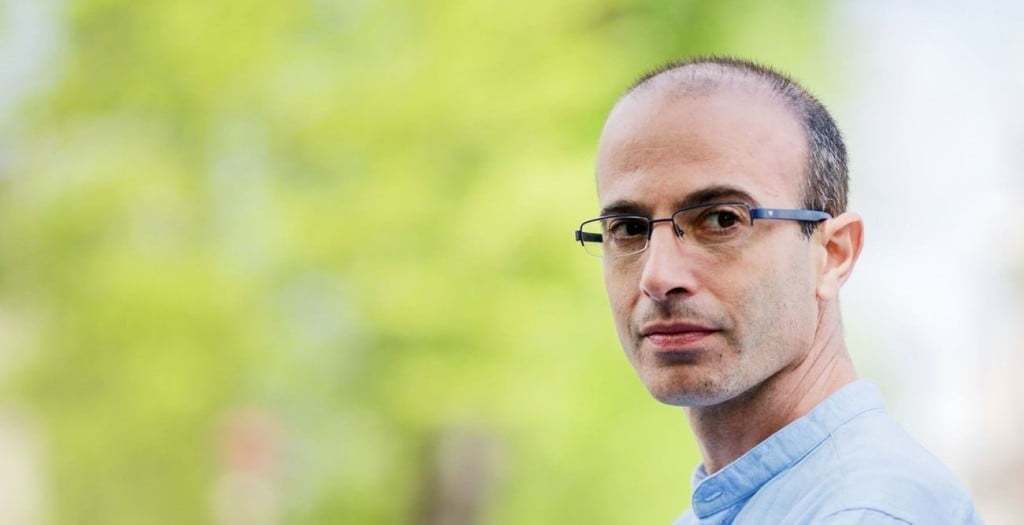
유발 하라리는 이번 선택이 미래를 결정할 것으로 전망
이 폭풍은 지나갈 거예요. 하지만 지금 우리가 하는 선택들은 앞으로 오랬동안 우리 삶을 바꿀 수 있습니다.
This storm will pass. But the choices we make now could change our lives for years to come
인류는 지금 글로벌 위기에 직면해 있습니다. 아마도 우리 세대가 격는 가장 큰 위기일 것입니다.
향후 몇 주 동안 사람들과 정부가 내린 결정이 아마도 앞으로 몇 년 동안 세계에 큰 영향을 미칠 것입니다. 이는 의료 시스템뿐만이 아니라 우리의 경제, 정치, 문화도 깊은 영향을 받을 것입니다.
우리는 신속하고 결단력 있게 행동해야 합니다. 또한 우리의 행동이 가져올 장기적인 결과를 숙고해 봐야 합니다. 여러 대안 중 하나를 선택할 때, 우리 자신에게 닥친 즉각적인 위협을 극복하는 방법뿐만 아니라, 이 폭풍이 지나간 후 우리는 어떤 세상에 살게 될 것인가를 스스로에게 자문해 봐야 합니다.
네. 이 폭풍이 지나가고 인류는 살아남을 것입니다. 우리들 대부분은 여전히 살아 있을 것입니다. 하지만 우리는 (지금과는) 다른 세상에 살고 있을 것입니다.
많은 단기적인 비상 조치들은 이제 우리 삶의 일부가 될 것(당연한 것으로 치부될 것입니다. – 역자 주) 입니다. 그것이 비상 조치의 특성입니다. 이는 지난 역사의 전철을 밟듯 빠르게 진행될 것입니다.
보통 때는 몇 년의 숙고가 필요할 수 있는 결정이 단 몇 시간만에 내려집니다.
아무것도 하지 않을 때의 위험이 더 크기 때문에 아직 완전하지 못하고 심지어 위험할 수도 있는 기술도 사용되어야 합니다.
대규모 사회 실험에서 모든 국가가 실험대상(guinea-pigs)이 됩니다.
모든 사람들이 집에서 일하고 멀리있는 사람들과 의사 소통한다면 무슨 일이 일어날까요? 학교와 대학 전체가 온라인에 접속해 교육을 받는다면 어떻게 될까요?
보통 때라면 정부, 기업, 교육위원회는 그런 실험에 대해 결코 동의하지 않을 것입니다. 하지만 지금은 정상적인 상황이 아닙니다.
이 위기의 시기에, 우리는 특별히 중요한 두 가지 선택에 직면합니다. 첫번째는 전체주의적인 감시와 시민 역량의 강화 사이의 선택입니다. 두 번째는 민족주의적 고립과 글로벌 연대 사이에서의 선택입니다.
우리는 두가지 중요한 선택에 직면해 있습니다.
첫째는 전체주의적인 감시와 시민 역량 강화 사이, 둘째는 민족주의적 고립과 글로벌 연대 사이의 선택
밀착 감시(Under-the-skin surveillance)
전염병 확산을 막기 위해서는, 전체 인구 모두 특정한 지침을 따라야 합니다. 이것을 달성하는 데는 크게 두 가지 방법이 있습니다.
정부 감시와 처벌 방법
한 가지 방법은 정부가 사람들을 감시하고, 지침을 어긴 사람들을 처벌하는 것입니다.
오늘날, 아마 인류 역사상 처음으로, 기술을 통해서 모든 사람을 항상 감시할 수 있게 되었습니다.
50년 전 KGB가 2.4억명의 소련 인민들을 24시간 감시할 수도 없었고. 수집된 모든 정보를 효과적으로 처리할 수도 없었습니다.
KGB는 정보 요원과 분석가에게 의존해야했고, 모든 소련 인미들을 감사할 수 있는 정보 요원들을 배치할 수는 없었습니다.
하지만 오늘날 각국의 정부들은 정보요원들 대신에 어디에나 존재하는 유비쿼터스 센서와 강력한 알고리즘으로 전 국민을 항상 감사할 수 있습니다.
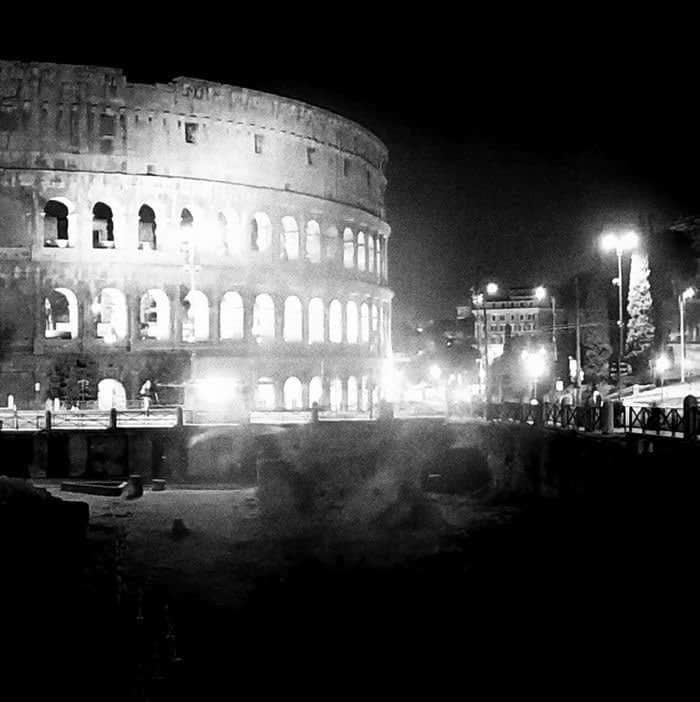
이탈리아 콜로세움 야간 풍경, The Colosseum in Rome, Image from Financial Times 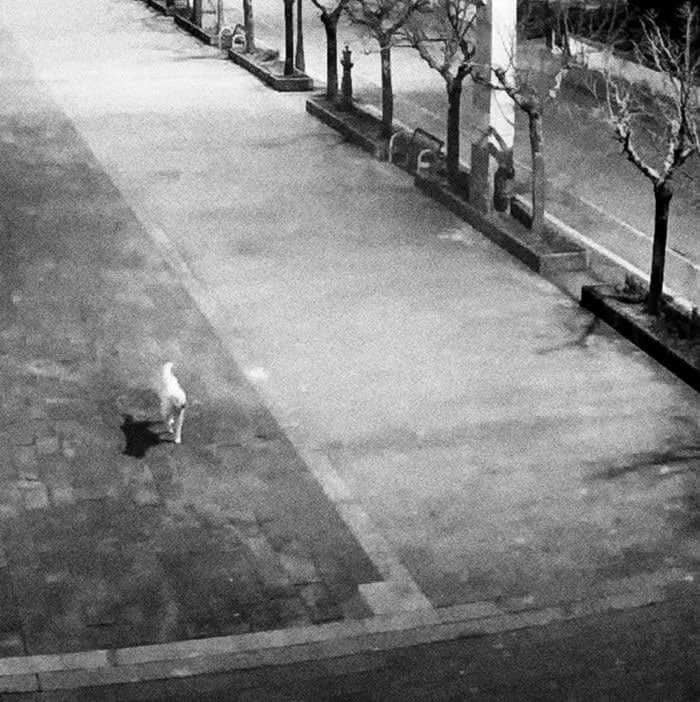
개 한마리만 돌아다니는 텅빈 광장, Piazza Beato Roberto in Pescara, Image from Graziano Panfili
코로나19와의 전쟁에서 몇몇 정부는 이미 새로운 감시 도구를 사용하고 있습니다.
가장 주목할 만한 사례는 중국입니다.
중국 당국은 사람들의 스마트폰을 면밀히 감시하고, 수억대의 얼굴 인식 카메라를 활용하고, 사람들에게 체온과 건강 상태를 확인하고 보고하도록 의무화함으로써, 코로나19로 의심되는 사람들을 신속하게 식별할 수 있을 뿐만 아니라, 그들의 움직임을 추적하고 그들과 접촉한 사람을 확인할 수 있습니다.
또한 다양한 모바일 앱들을 이용해 사람들은 근처에 코로나19 확진자들이 있는지 쉽게 확인할 수 있습니다.
이런 기술 사용은 동아시아에만 국한되지 않습니다.
이스라엘의 벤자민 네타냐후(Benjamin Netanyahu) 총리는 최근 이스라엘 보안국이 평시에 테러리스트들을 추적하기 위해 개발한 감시 기술을 코로나19 확진자들을 추적하는데 사용하는 것을 승인했습니다.
이와 관련 이스라엘 국회가 이 법안 승인을 거부하자, 네탄야후 총리는 “긴급명령(emergency decree)”으로 밀어부쳤습니다.
여러분은 이러한 모든 것이 전혀 새롭지 않다고 주장할 지도 모릅니다.
최근 몇 년 동안 정부와 기업들은 첨단 기술을 사람들을 추적하고, 감시하고, 조작하는데 사용해 왔습니다.
그러나 우리가 유의하지 않는다면 이번 전염병은 감시 체제의 역사에서 중요한 분수령이 될지도 모릅니다.
지금까지 거부해 온 국가의 대대적인 보안 감시 도구 보급이 정당화될 뿐만이 아니라 감시 기술 자체가 “근접감시(over the skin)”에서 “밀착감시(under the skin)”로 전면적으로 전환될 수 도 있기 때문입니다.
국가의 대대적인 보안 감시 도구 보급이 정당화될 뿐만이 아니라 감시 기술 자체가 “근접감시(over the skin)”에서 “밀착감시(under the skin)”로 전면적으로 전환될 수 도 있 습니다.
지금까지 당신이 스마트폰 화면을 터치하고, 링크를 클릭했을 때 정부는 정확히 무엇을 터치하고 클릭했는지를 알고 싶어했습니다.
하지만 코로나19로 인해서 관심의 초점이 바뀌었습니다. 이제 정부는 당신의 체온과 혈압을 알고 싶어 합니다.
위기라는 상황(The emergency pudding)
우리가 감시할 때 직면하는 문제 중 하나는 정확히 감사 대상이 누구인지, 앞으로 몇 년 동안 어떤 결과가 초래될지를 정확히 알지 못한다는 것입니다.
오늘날 감시 기술은 놀라운 속도로 발전하고 있습니다. 10년 전 공상 과학 소설에서나 가능해 보였던 것들이 오늘 날에는 당연한 것처럼 치부될 정도입니다.
모든 국민들에게 24시간 체온과 심박수를 모니터링할 수 있는 생체 인식 팔찌를 착용하도록 요구하는 가상의 정부가 있다고 생각해 보세요.
그 팔찌에서 생성된 생체 결과 데이터는 정부 알고리즘에 의해 저장되고 분석됩니다. 알고리즘은 여러분이 알아채기도 전에 여러분이 아프다는 것을 알게 될 것이고, 여러분이 어디에 있었는지, 여러분이 누구를 만났는지도 알게 될 것입니다.
그러한 알고리즘은 전염병 확산의 사슬을 약화시키고, 아예 싹을 잘라 버릴 수도 있습니다. 그러한 시스템은 틀림없이 수일 내에 전염병 확산을 막을 수 있을 것입니다.
멋지지 않나요?
물론, 단점은 이러한 방식이 무시무시한 새로운 감시 시스템을 합법화시켜 준다는 것입니다.
예를 들어, 제가 CNN보다는 폭스 뉴스를 클릭했다는 것을 안다면, 이를 통해서 제 정치적 견해와 제 성격까지도 유추해 낼 수 있습니다.
그런데 어떤 동영상을 볼 때 제 체온, 혈압, 심박수 등을 파악할 수 있다면, 무엇이 저를 웃게 하는지, 무엇이 저를 울게 하는지, 그리고 무엇이 저를 정말로 화나게 하는지 파악할 수 있습니다.
분노, 기쁨, 권태와 사랑은 열과 기침과 같은 생물학적 현상이라는 것을 기억야 합니다. 기침을 식별하는 기술로 웃음을 식별할 수 있습니다.
기업과 정부가 우리의 생체 정보를 일괄적으로 수집하기 시작하면, 그들은 우리가 아는 것보다 훨씬 더 우리를 잘 알 수 있습니다.
그리고 나면 그들은 우리 감정을 예측할 뿐만 아니라 우리의 감정을 조작하고 더 나아가 그들이 원하는 것을 팔 수 있습니다. 제품이든 정치인이든 말이죠.
생체정보를 이용한 감시는 케임브리지 애널리티카(Cambridge Analytica)의 데이터 해킹 기술을 석기 시대의 것처럼 보이게 할 것입니다. ( 케임브리지 애널리티카(Cambridge Analytica)는 2016년 미 대선당시 페이스북 개인정보를 해킹해 트럼프 대선 캠페인에 활용했었다. – 역자 주)
모든 국민이 24시간 생체 인식 팔찌를 착용해야 하는 2030년의 북한을 상상해 보세요.
만약 여러분이 위대한 지도자의 연설을 듣고 분노했다고 치죠. 정부는 당신이 차고 있는 팔찌의 생체 정보를 기반으로 당신의 분노 징후를 포착할 수 있습니다. 그러면 여러분은 끝장날 거예요.

Veduta della Casa Universitaria in Lodi © Graziano Panfili 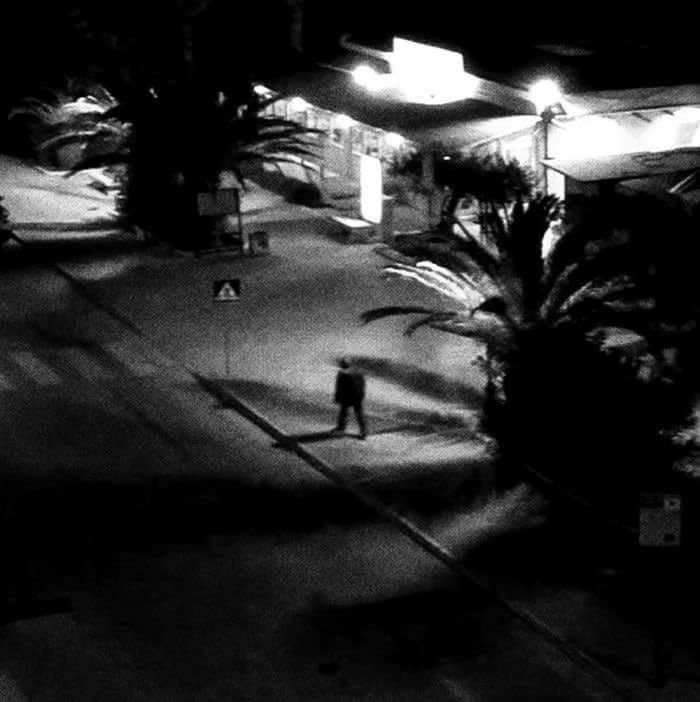
Spiaggia di Porto San Giorgio, Mare Adriatico © Graziano Panfili
물론, 우리는 위기 상황 동안 취할 수 있는 임시 조치로서 생체 정보를 이용해 감시할 수 있습니다.
일단 비상사태가 끝나면 사라지겠죠.
그러나 임시 조치는 대개 위기상황이 끝나도 지속되기 마련입니다. 예를들어 제 고국 이스라엘은 1948년 독립전쟁당시 비상시국을 선포하여 언론 검열과 토지 몰수 그리고 푸딩 제조 특별 규정등 다양한 임시 조치들이 시행되었습니다.
이 독립전쟁이 끝났지만 이스라엘은 오랬동안 비상시국 종료를 선언하지 않았고, 1948년부터 시행된 수많은 “임시 조치”들은 폐지되지 않고 지속 시행되었습니다.(푸딩 제조에 대한 특별 규정은 2011년에야 폐지되었습니다.)
심지어 코로나19 확진자가 더이상 발생하지 않더라도 데이타 수집에 열을 올리는 정부들은 코로나19의 2차 확산이나 중앙 아프리카에서 진화되는 새로운 에볼라 바이러스를 막기 위해서 생체 정보를 이용한 감시를 계속해야 한다고 주장할 수 있습니다.
무슨 의미인지 알겠죠?
최근 몇 년 동안 개인정보보호를 둘러싸고 큰 전쟁이 벌어지고 있습니다.
코로나19 확산이 이러한 개인정보보호 전쟁의 정점이 될 수 있습니다.
왜냐하면 사람들은 개인정보보호와 건강 중 하나를 선택해야 한다면 대개 건강을 선택할 것이기 때문입니다.
The soap police
사람들에게 개인정보보호와 건강 중 양자택일하라는 요구가 자체가 사실 문제의 근본 원인입니다.
왜냐하면 이것은 잘못된 선택 방식이 때문입니다.(Because this is a false choice.) 우리는 개인정보보호와 건강을 둘 다 누릴 수 있고 또 그래야 합니다.
우리의 건강을 보호하고 코로나19 확산을 막기 위해 전체주의적 감시체제를 도입하는 것이 아니라 시민 역량 강화(empowering citizens) 정책을 선택할 수 있습니다.
최근 몇 주 동안, 코로나19 확산을 막기위한 가장 성공적인 사례들이 한국, 대만, 싱가포르에서 이루어졌습니다.
이들 국가들은 추적을 위한 일부 감시 시스템을 어느 정도 활용했지만, 광범위한 테스트, 투명한 정보 공개, 그리고 정보에 정통한 국민들의 자발적인 협조에 더 많이 의존했습니다.
사람들의 협조를 이끌어 내는 방법에는 중앙 집중식 감시와 가혹한 처벌만이 유일한 방법은 아닙니다.
사람들에게 과학적인 사실들을 알려주고, 정부가 진실을 이야기하고 있다고 믿을 때, 국민들은 빅브라더 없이도 옳은 일을 할 수 있습니다.
자발적이고 제대로 된 정보를 알고 있는 사람들은 강요되고 무지한 사람들보다도 훨씬 더 강력하고 효율적입니다.
예를 들어, 비누로 손을 씻는 것을 생각해 보세요. 이는 인류 위생사에 있어거 가장 큰 발전 중 하나였습니다. 이 간단한 행동 하나가 매년 수백만명의 생명을 구합니다.
오늘날 우리는 비누로 손을 씻는 것을 아주 당연시 하지만, 과학자들이 비누로 손을 씻는 것의 중요성을 발견한 것은 19세기에 불과합니다. 이 이전에는, 심지어 의사와 간호사도 손을 씻지 않고 한 수술 후 다른 수술을 진행하곤 했습니다.
오늘날 수십억의 사람들이 매일 손을 씻는 것은 비누로 손을 씻는지 감시하는 경찰이 두려워서가 아니라 손을 씻는 것의 중요성을 이해하고 있기 때문입니다.
저는 바이러스와 박테리아를 알고 있기 때문에 비누로 손을 씻었습니다. 저는 이 작은 유기체들이 질병을 일으킨다는 것을 이해합니다. 그리고 비누로 씻어서 그것들을 제거할 수 있다는 것을 알고 있습니다.
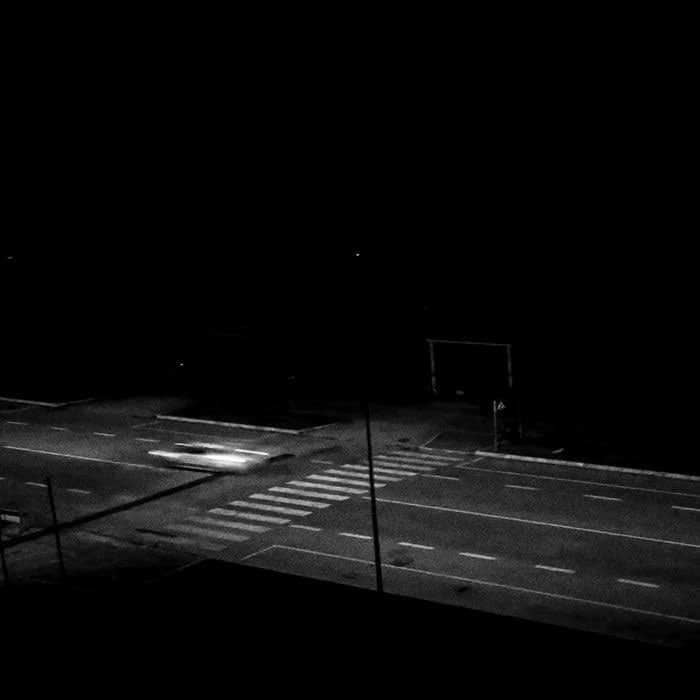
ungomare di Forte dei Marmi, in Versilia © Graziano Panfili 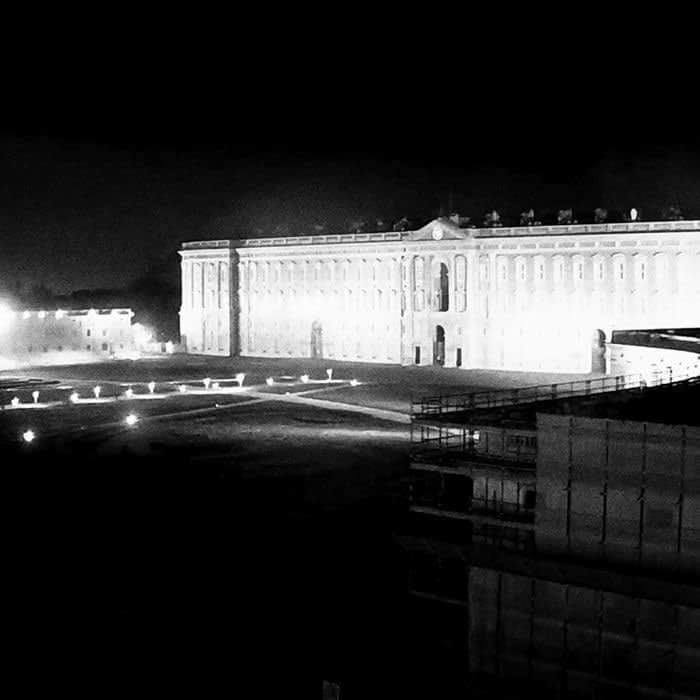
The Royal Palace of Caserta © Graziano Panfili
그러나 그런 수준의 준수와 협력을 이루기 위해서는 신뢰가 필요합니다. 사람들은 과학을 믿고, 국가를 믿고, 언론을 믿어야 합니다.
지난 몇 년 동안 무책임한 정치인들은 의도적으로 과학, 공권력, 언론 등에 대한 신뢰를 훼손해 왔습니다.
지금 이런 무책임한 정치인들은 무지몽매한 대중들을 믿을 수 없기 때문에 전체주의를 지향하자고 유혹할지도 모릅니다.
일반적으로 오랬동안 손상된 신뢰가 하루 이틀사이에 회복될 수는 없습니다.
하지만 지금은 정상적인 상황이 아닙니다. 위기의 순간에, 마음 역시 빠르게 변할 수 있습니다.
형제 자매들과 몇 년 동안 심하게 말다툼 할 수 있지만, 어떤 위급한 일이 일어나면 그동안 잘 모르고 있었던 신뢰와 우정을 발견하고 서로 도우려 합니다.
감시 체제를 구축하는 대신 과학과 공권력, 언론 등에 대한 국민의 신뢰를 회복해도 늦지 않습니다.
우리는 반드시 새로운 기술을 활용해야 합니다. 하지만 이러한 기술은 시민들에게 힘을 실어주는 방향으로 가야 합니다.
저는 제 체온과 혈압을 모니터링하는 것에 전적으로 찬성하지만, 그러한 데이타를 강력한 정부를 만드는 데 사용하는 것에는 반대합니다.
오히려 이러한 데이터를 통해 얻어진 보다 많은 정보에 기반한 개인적 선택 폭을 넓혀야 하며, 정부의 결정 과정에 참여할 수 있어야 합니다.
만약 제가 하루 24시간 동안 제 자신의 건강 상태를 추적할 수 있다면, 제가 다른 사람들에게 건강상의 위험이 되었는지 뿐만 아니라, 어떤 습관이 제 건강에 기여하는지 배울 것입니다.
그리고 만약 제가 코로나19 확산에 대한 믿을만한 통계를 접근하고 분석할 수 있다면, 저는 정부가 제게 진실을 말하고 있는지 그리고 그것이 전염병과 싸우기 위해 올바른 정책을 채택하고 있는지 판단할 수 있을 것입니다.
사람들이 보안 감시에 대해 이야기할 때마다, 동일한 보안 감시 기술은 일반적으로 정부뿐만 아니라 개인들이 정부를 감시하는 데 사용될 수 있습니다.
따라서 코로나19 확산은 시민권에 대한 중요한 시험이 될 것입니다.
앞으로 우리 각자들은 근거 없는 음모론이나 자화자찬하는 정치인 대신 과학적 자료와 의료전문가를 신뢰해야 합니다.
만약 우리가 올바른 선택을 하지 않으면, 우리의 건강을 지키는 유일한 방법이라고 생각하면서 우리 자유를 구속하는 방안에 서명할지도 모릅니다.
글로벌 플랜이 필요합니다.(We need a global plan)
우리가 직면한 두 번째 중요한 선택은 민족주의 고립과 글로벌 연대사이의 선택입니다.
코로나19 자체와 그로인한 경제 위기는 모두 세계적인 문제입니다. 전 세계적인 협력이 있어야만 효과적으로 해결할 수 있습니다.
무엇보다도, 코로나19 바이러스를 물리치기 위해서는 전세계적으로 정보를 공유해야 합니다. 이것이 인간이 바이러스에 비해 가질 수 있는 큰 장점입니다.
중국의 코로나19 바이러스와 미국의 코로나19 바이러스는 더 많은 인간을 감염시키는 방법에 대한 정보를 교환할 수 없습니다.
하지만 중국은 미국에 코로나19 바이러스에 대한 많은 귀중한 교훈과 대처법을 가르쳐 줄 수 있습니다.
이탈리아 의사가 이른 아침 밀라노에서 발견한 정보를 기반으로 저녁 무렵이면 테헤란에서 생명을 구할 수도 있을 것입니다.
영국 정부가 여러 정책 사이에서 결정을 망설일 때, 이미 한 달 전에 비슷한 딜레마에 직면했던 한국 정부로부터 조언을 들을 수 있습니다.
하지만 이러한 협력이 일어나기 위해서는 글로벌한 협력과 신뢰의 정신이 필요합니다.
앞으로 각국은 근거 없는 음모론과 자화자찬하는 정치인 대신 과학적 자료와 의료 전문가들을 신뢰하는 쪽을 택해야 합니다. 국가들은 공개적으로 정보를 공유하고 겸허하게 조언을 구해야 하며, 그들이 받는 자료와 통찰력을 신뢰할 수 있어야 합니다.
우리는 또한 의료 장비를 생산하고 배포하기 위한 전세계적인 노력이 필요합니다. 특히 진단 키트와 호흡기를 확보하는 것이 중요합니다.
모든 국가가 자국 자체적으로 의료 장비를 확보하려고 노력하고, 얻을 수 있는 모든 장비를 독식하려는 시도 대신 전 세계적으로 공동으로 조정된 노력으로 생산 속도를 크게 높이고 생명을 구하는 장비들이 더 공정하게 분배되도록 할 수 있습니다.
국가간 전쟁 중에 각국이 주요 산업을 국유화하듯이, 코로나19 바이러스와의 인간간의 전쟁은 우리에게 중요한 생산 라인을 “인류화”하도록 요구할지도 모릅니다.
코로나19가 확산되지 않은 부유한 나라는 나중에 도움을 필요로 할 때 다른 나라들이 도움을 받을 것이라고 믿고 코로나19가 확산된 가난한 나라에 귀중한 장비를 기꺼이 보내야 합니다.
우리는 의료진을 모으기 위한 비슷한 국제적 노력을 해야할지도 모릅니다.
현재 코로나19의 영향을 덜 받는 국가들은 엄청난 피해를 받고있는 지역에 의료진을 파견할 수 있습니다. 이는 의료진들이 어려운 시기에 그들을 돕고 바이러스에 대한 귀중한 경험과 지식을 쌓을 수 있습니다.
나중에 전염병 이동에 초점을 맞춘다면, 도움은 반대 방향으로 흐르기 시작할 수 있습니다.
경제 분야에서도 세계적인 협력이 절대적으로 필요합니다. 경제와 공급망의 세계적 특성을 감안할 때, 각 정부가 자신들만 살고자 다른 국가들을 고려하지 않는다면 더욱 더 큰 혼란과 심화되는 위기로 귀결될 뿐입니다.
우리는 글로벌 행동 계획이 필요합니다. 그것도 시급히 필요합니다.
또 다른 요구 사항은 여행에 관한 글로벌 합의에 도달하는 것입니다. 몇 달 동안 모든 해외 여행을 중단하는 것은 엄청난 어려움을 야기할 것이고, 코로나19 바이러스와의 전쟁에도 도움이 되지 않을 것입니다.
국가들은 과학자들, 의사들, 기자들, 정치인, 사업가들 등 최소한의 필수 여행자들을 위해 국경을 개방할 필요가 있습니다.
이는 출발 국가의 여행자에 대한 사전 점검에 대한 글로벌 협정을 체결함으로써 가능합니다.
신중하게 선별된 (코로나19로부터 안전한)여행자만 비행기에 탑승한다는 것을 믿을 수 있다면 대부분 국가들은 그들을 수용할 수 있을 것입니다.

The Duomo in Florence © Graziano Panfili 
Torre San Giovanni, in Lecce © Graziano Panfili
불행히도, 현재 각국 정부들은 이런 조치를 취하지 않고 있습니다. 집단 마비가 국제사회를 사로잡고 있습니다.
(이러한 위기를) 극복할 진정한 리더가 보이지 않습니다.
전 세계 사람들은 몇주전부터 글로벌 공동 행동 계획을 마련하기 위한 세계 지도자들의 긴급 회의를 고대해 왔습니다.
그러나 겨우 이번주에야 G7 정상들의 화상회의가 열렸을 뿐입니다. 그리고 그 회의에서 어떤 결과도 얻지 못했습니다.
2008년 금융위기와 2014년 에볼라 전염병과 같은 이전의 글로벌 위기에서 미국은 글로벌 리더의 역할을 맡았습니다. 그러나 현 미국 정부는 지도자의 역활을 방기하고 있습니다.
미국 정부는 인류의 미래보다 미국의 위대함에 대해 훨씬 더 신경을 쓴다는 것을 분명히 했습니다.
심지어 미국 정부는 가장 가까운 동맹국들도 버렸습니다. 미국 정부가 EU로부터 모든 여행을 금지했을 때, 그 과감한 조치에 대해 EU와 전혀 협의하지 않았습니다.
더우기 코로나19 백신을 개발하고 있는 독일 제약회사에 독점 계약을 위해 10억달러를 제시해 독일 정부를 분개케 했습니다.
현 미국 정부가 마음을 바꾸어 글로벌 행동계획을 내놓더라도, 무책임하고, 실수를 인정하지 않으며, 모든 책임을 남에게 떠넘기면서도 모든 공로를 독차지하려는 지도자를 따를 국가가 거의 없을 것입니다.
만약 미국이 남긴 리더의 공백을 다른 나라들이 메우지 않는다면, 코로나19 확산을 막는 것이 훨씬 더 어려울 뿐만 아니라, 앞으로도 몇 년 동안 계속해서 국제 관계에 해를 끼칠 것입니다.
그러나 모든 위기는 또한 기회입니다.
우리는 현재의 전염병이 지구촌의 분열의 심각한 위험을 깨닫는 계기가 되길 바랍니다.
인류는 선택을 해야 합니다.
우리는 분열의 길을 걸을까요, 아니면 글로벌 연대의 길을 택할까요?
만약 우리가 분열을 선택한다면, 위기를 연장시킬 뿐만 아니라, 아마도 미래에 더 심각한 재앙을 초래할 것입니다.
만약 우리가 글로벌 연대를 선택한다면, 그것은 코로나19 바이러스에 대한 승리일 뿐만 아니라, 향후 일어날 21세기 모든 미래의 전염병의 위기에 대한 승리일 것입니다.
FT 기사 전문
Humankind is now facing a global crisis. Perhaps the biggest crisis of our generation.
The decisions people and governments take in the next few weeks will probably shape the world for years to come.
They will shape not just our healthcare systems but also our economy, politics and culture. We must act quickly and decisively. We should also take into account the long-term consequences of our actions.
When choosing between alternatives, we should ask ourselves not only how to overcome the immediate threat, but also what kind of world we will inhabit once the storm passes.
Yes, the storm will pass, humankind will survive, most of us will still be alive — but we will inhabit a different world.
Many short-term emergency measures will become a fixture of life. That is the nature of emergencies. They fast-forward historical processes.
Decisions that in normal times could take years of deliberation are passed in a matter of hours. Immature and even dangerous technologies are pressed into service, because the risks of doing nothing are bigger.
Entire countries serve as guinea-pigs in large-scale social experiments.
What happens when everybody works from home and communicates only at a distance? What happens when entire schools and universities go online? In normal times, governments, businesses and educational boards would never agree to conduct such experiments. But these aren’t normal times.
In this time of crisis, we face two particularly important choices. The first is between totalitarian surveillance and citizen empowerment. The second is between nationalist isolation and global solidarity.
Under-the-skin surveillance
In order to stop the epidemic, entire populations need to comply with certain guidelines. There are two main ways of achieving this. One method is for the government to monitor people, and punish those who break the rules.
Today, for the first time in human history, technology makes it possible to monitor everyone all the time. Fifty years ago, the KGB couldn’t follow 240m Soviet citizens 24 hours a day, nor could the KGB hope to effectively process all the information gathered.
The KGB relied on human agents and analysts, and it just couldn’t place a human agent to follow every citizen. But now governments can rely on ubiquitous sensors and powerful algorithms instead of flesh-and-blood spooks.
In their battle against the coronavirus epidemic several governments have already deployed the new surveillance tools.
The most notable case is China.
By closely monitoring people’s smartphones, making use of hundreds of millions of face-recognising cameras, and obliging people to check and report their body temperature and medical condition, the Chinese authorities can not only quickly identify suspected coronavirus carriers, but also track their movements and identify anyone they came into contact with.
A range of mobile apps warn citizens about their proximity to infected patients.
This kind of technology is not limited to east Asia. Prime Minister Benjamin Netanyahu of Israel recently authorised the Israel Security Agency to deploy surveillance technology normally reserved for battling terrorists to track coronavirus patients.
When the relevant parliamentary subcommittee refused to authorise the measure, Netanyahu rammed it through with an “emergency decree”.
You might argue that there is nothing new about all this.
In recent years both governments and corporations have been using ever more sophisticated technologies to track, monitor and manipulate people. Yet if we are not careful, the epidemic might nevertheless mark an important watershed in the history of surveillance.
Not only because it might normalise the deployment of mass surveillance tools in countries that have so far rejected them, but even more so because it signifies a dramatic transition from “over the skin” to “under the skin” surveillance.
Hitherto, when your finger touched the screen of your smartphone and clicked on a link, the government wanted to know what exactly your finger was clicking on.
But with coronavirus, the focus of interest shifts. Now the government wants to know the temperature of your finger and the blood-pressure under its skin.
The emergency pudding
One of the problems we face in working out where we stand on surveillance is that none of us know exactly how we are being surveilled, and what the coming years might bring.
Surveillance technology is developing at breakneck speed, and what seemed science-fiction 10 years ago is today old news.
As a thought experiment, consider a hypothetical government that demands that every citizen wears a biometric bracelet that monitors body temperature and heart-rate 24 hours a day.
The resulting data is hoarded and analysed by government algorithms.
The algorithms will know that you are sick even before you know it, and they will also know where you have been, and who you have met.
The chains of infection could be drastically shortened, and even cut altogether.
Such a system could arguably stop the epidemic in its tracks within days.
Sounds wonderful, right?
The downside is, of course, that this would give legitimacy to a terrifying new surveillance system.
If you know, for example, that I clicked on a Fox News link rather than a CNN link, that can teach you something about my political views and perhaps even my personality.
But if you can monitor what happens to my body temperature, blood pressure and heart-rate as I watch the video clip, you can learn what makes me laugh, what makes me cry, and what makes me really, really angry.
It is crucial to remember that anger, joy, boredom and love are biological phenomena just like fever and a cough.
The same technology that identifies coughs could also identify laughs.
If corporations and governments start harvesting our biometric data en masse, they can get to know us far better than we know ourselves, and they can then not just predict our feelings but also manipulate our feelings and sell us anything they want — be it a product or a politician.
Biometric monitoring would make Cambridge Analytica’s data hacking tactics look like something from the Stone Age.
Imagine North Korea in 2030, when every citizen has to wear a biometric bracelet 24 hours a day.
If you listen to a speech by the Great Leader and the bracelet picks up the tell-tale signs of anger, you are done for.
You could, of course, make the case for biometric surveillance as a temporary measure taken during a state of emergency.
It would go away once the emergency is over.
But temporary measures have a nasty habit of outlasting emergencies, especially as there is always a new emergency lurking on the horizon.
My home country of Israel, for example, declared a state of emergency during its 1948 War of Independence, which justified a range of temporary measures from press censorship and land confiscation to special regulations for making pudding (I kid you not).
The War of Independence has long been won, but Israel never declared the emergency over, and has failed to abolish many of the “temporary” measures of 1948 (the emergency pudding decree was mercifully abolished in 2011).
Even when infections from coronavirus are down to zero, some data-hungry governments could argue they needed to keep the biometric surveillance systems in place because they fear a second wave of coronavirus, or because there is a new Ebola strain evolving in central Africa, or because . . . you get the idea.
A big battle has been raging in recent years over our privacy.
The coronavirus crisis could be the battle’s tipping point. For when people are given a choice between privacy and health, they will usually choose health.
The soap police
Asking people to choose between privacy and health is, in fact, the very root of the problem.
Because this is a false choice.
We can and should enjoy both privacy and health. We can choose to protect our health and stop the coronavirus epidemic not by instituting totalitarian surveillance regimes, but rather by empowering citizens.
In recent weeks, some of the most successful efforts to contain the coronavirus epidemic were orchestrated by South Korea, Taiwan and Singapore.
While these countries have made some use of tracking applications, they have relied far more on extensive testing, on honest reporting, and on the willing co-operation of a well-informed public.
Centralised monitoring and harsh punishments aren’t the only way to make people comply with beneficial guidelines.
When people are told the scientific facts, and when people trust public authorities to tell them these facts, citizens can do the right thing even without a Big Brother watching over their shoulders.
A self-motivated and well-informed population is usually far more powerful and effective than a policed, ignorant population.
Consider, for example, washing your hands with soap. This has been one of the greatest advances ever in human hygiene.
This simple action saves millions of lives every year.
While we take it for granted, it was only in the 19th century that scientists discovered the importance of washing hands with soap.
Previously, even doctors and nurses proceeded from one surgical operation to the next without washing their hands.
Today billions of people daily wash their hands, not because they are afraid of the soap police, but rather because they understand the facts.
I wash my hands with soap because I have heard of viruses and bacteria, I understand that these tiny organisms cause diseases, and I know that soap can remove them.
The Royal Palace of Caserta © Graziano Panfili Lungomare di Forte dei Marmi, in Versilia © Graziano Panfili
But to achieve such a level of compliance and co-operation, you need trust.
People need to trust science, to trust public authorities, and to trust the media.
Over the past few years, irresponsible politicians have deliberately undermined trust in science, in public authorities and in the media.
Now these same irresponsible politicians might be tempted to take the high road to authoritarianism, arguing that you just cannot trust the public to do the right thing.
Normally, trust that has been eroded for years cannot be rebuilt overnight. But these are not normal times.
In a moment of crisis, minds too can change quickly.
You can have bitter arguments with your siblings for years, but when some emergency occurs, you suddenly discover a hidden reservoir of trust and amity, and you rush to help one another.
Instead of building a surveillance regime, it is not too late to rebuild people’s trust in science, in public authorities and in the media.
We should definitely make use of new technologies too, but these technologies should empower citizens.
I am all in favour of monitoring my body temperature and blood pressure, but that data should not be used to create an all-powerful government.
Rather, that data should enable me to make more informed personal choices, and also to hold government accountable for its decisions.
If I could track my own medical condition 24 hours a day, I would learn not only whether I have become a health hazard to other people, but also which habits contribute to my health.
And if I could access and analyse reliable statistics on the spread of coronavirus, I would be able to judge whether the government is telling me the truth and whether it is adopting the right policies to combat the epidemic.
Whenever people talk about surveillance, remember that the same surveillance technology can usually be used not only by governments to monitor individuals — but also by individuals to monitor governments.
The coronavirus epidemic is thus a major test of citizenship.
In the days ahead, each one of us should choose to trust scientific data and healthcare experts over unfounded conspiracy theories and self-serving politicians.
If we fail to make the right choice, we might find ourselves signing away our most precious freedoms, thinking that this is the only way to safeguard our health.
We need a global plan
The second important choice we confront is between nationalist isolation and global solidarity.
Both the epidemic itself and the resulting economic crisis are global problems.
They can be solved effectively only by global co-operation.
First and foremost, in order to defeat the virus we need to share information globally.
That’s the big advantage of humans over viruses.
A coronavirus in China and a coronavirus in the US cannot swap tips about how to infect humans.
But China can teach the US many valuable lessons about coronavirus and how to deal with it.
What an Italian doctor discovers in Milan in the early morning might well save lives in Tehran by evening.
When the UK government hesitates between several policies, it can get advice from the Koreans who have already faced a similar dilemma a month ago.
But for this to happen, we need a spirit of global co-operation and trust.
In the days ahead, each one of us should choose to trust scientific data and healthcare experts over unfounded conspiracy theories and self-serving politicians Countries should be willing to share information openly and humbly seek advice, and should be able to trust the data and the insights they receive.
We also need a global effort to produce and distribute medical equipment, most notably testing kits and respiratory machines. Instead of every country trying to do it locally and hoarding whatever equipment it can get, a co-ordinated global effort could greatly accelerate production and make sure life-saving equipment is distributed more fairly.
Just as countries nationalise key industries during a war, the human war against coronavirus may require us to “humanise” the crucial production lines.
A rich country with few coronavirus cases should be willing to send precious equipment to a poorer country with many cases, trusting that if and when it subsequently needs help, other countries will come to its assistance.
We might consider a similar global effort to pool medical personnel. Countries currently less affected could send medical staff to the worst-hit regions of the world, both in order to help them in their hour of need, and in order to gain valuable experience.
If later on the focus of the epidemic shifts, help could start flowing in the opposite direction. Global co-operation is vitally needed on the economic front too. Given the global nature of the economy and of supply chains, if each government does its own thing in complete disregard of the others, the result will be chaos and a deepening crisis.
We need a global plan of action, and we need it fast.
Another requirement is reaching a global agreement on travel. Suspending all international travel for months will cause tremendous hardships, and hamper the war against coronavirus.
Countries need to co-operate in order to allow at least a trickle of essential travellers to continue crossing borders: scientists, doctors, journalists, politicians, businesspeople.
This can be done by reaching a global agreement on the pre-screening of travellers by their home country.
If you know that only carefully screened travellers were allowed on a plane, you would be more willing to accept them into your country.
Unfortunately, at present countries hardly do any of these things.
A collective paralysis has gripped the international community.
There seem to be no adults in the room. One would have expected to see already weeks ago an emergency meeting of global leaders to come up with a common plan of action.
The G7 leaders managed to organise a videoconference only this week, and it did not result in any such plan.
In previous global crises — such as the 2008 financial crisis and the 2014 Ebola epidemic — the US assumed the role of global leader. But the current US administration has abdicated the job of leader.
It has made it very clear that it cares about the greatness of America far more than about the future of humanity.
This administration has abandoned even its closest allies. When it banned all travel from the EU, it didn’t bother to give the EU so much as an advance notice — let alone consult with the EU about that drastic measure.
It has scandalised Germany by allegedly offering $1bn to a German pharmaceutical company to buy monopoly rights to a new Covid-19 vaccine.
Even if the current administration eventually changes tack and comes up with a global plan of action, few would follow a leader who never takes responsibility, who never admits mistakes, and who routinely takes all the credit for himself while leaving all the blame to others.
If the void left by the US isn’t filled by other countries, not only will it be much harder to stop the current epidemic, but its legacy will continue to poison international relations for years to come. Yet every crisis is also an opportunity.
We must hope that the current epidemic will help humankind realise the acute danger posed by global disunity. Humanity needs to make a choice.
Will we travel down the route of disunity, or will we adopt the path of global solidarity?
If we choose disunity, this will not only prolong the crisis, but will probably result in even worse catastrophes in the future.
If we choose global solidarity, it will be a victory not only against the coronavirus, but against all future epidemics and crises that might assail humankind in the 21st century.
Yuval Noah Harari is author of ‘Sapiens’, ‘Homo Deus’ and ‘21 Lessons for the 21st Century’

